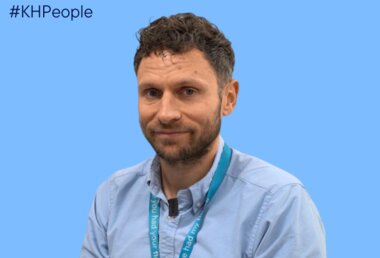10 April 2024
What is your role within King’s Health Partners?
I am an honorary consultant paediatric and fetal cardiologist at Guy’s and St Thomas’ NHS Foundation Trust and King’s College Hospital NHS Foundation Trust, and I have recently been awarded the KHP Clinical Research Excellence Fellowship to continue my research work at King’s College London.
This means that my clinical work is focused on congenital heart disease, both in unborn babies and children after birth. My research is looking at ways of using artificial intelligence to improve the detection rates of heart malformations in unborn babies, with is currently only around 50% in the UK.
What do you enjoy most about your role?
Combining research with clinical work is a great way of making sure the job never becomes dull or repetitive. I think they complement each other really well, as clinical work is generally focused on dealing with problems immediately, whereas research involves longer-term projects.
What inspired you to get into this work?
I was inspired to pursue an academic career after doing an intercalated masters of research (MRes) degree while at medical school. During this I was supervised by clinical academics, and I realised for the first time that these types of careers were possible. This eventually led on to integrated academic training at foundation and specialist level, and recently a PhD.
What are the benefits of working in partnership?
I love working with a variety of clinicians, including specialist nurses, sonographers, and fetal medicine consultants, along with incredibly specialised academics that are world-leading experts in computer science.
By working in partnership, all of these people can bring their specific skills to bear on the clinical problem. After many years of work, we have recently developed a prototype product using AI technology that is almost ready to be deployed in the NHS, which is very exciting.
What would be your career top tips?
The NIHR integrated academic training programme is a really great way to develop academic skills for clinicians who are interested in a clinical academic career. But even for those who are in standard training programmes, there are often opportunities to get involved in research- most academic clinicians would be delighted to have a keen trainee involved in their research, so it’s always worth contacting people if you are interested in their research.
King’s Health Partners also have pre- and post-doctoral fellowships available, so if you work for one of the partner Trusts then keen clinicians should look into these.
Find out more about the King’s Health Partners Centre for Translational Medicine.





